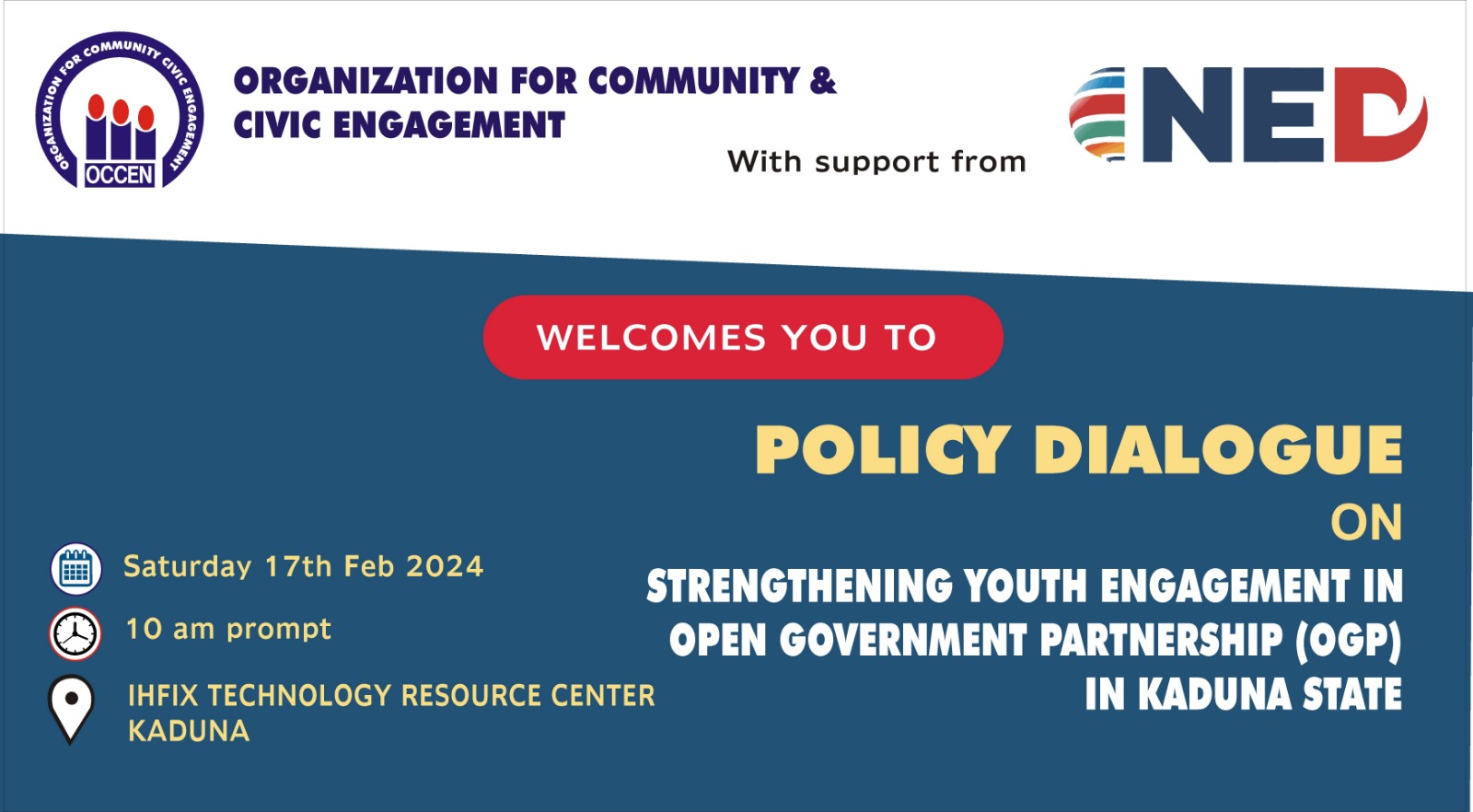Abdullahi Barikin Ladi
Kaduna, Nigeria - In a compelling presentation titled "Understanding and Implementing Civic Engagement" at the "A Policy Dialogue on Strengthening Youth Engagement in Open Government Partnership (OGP)" event held in Kaduna, Yusha'u Abubakar, the Kaduna State Coordinator for Community Civic Engagement, defined 'Civic Engagement' as intentional actions by individuals or groups to participate in democracy.
"Acting upon your CARES and CONCERNS within your community is at the heart of Civic Engagement," emphasized Yusha'u. He stressed the importance of educating oneself on various issues and using one's gifts, talents, and resources to promote positive change. Civic Engagement, according to him, involves being an effective and responsible citizen by contributing ideas focused on the common good.
Yusha'u highlighted five Civic dimensions of social inclusion:
1. **Commitment to Diversity:** Plans, policies, and actions that provide valued recognition to all individuals and groups.
2. **Opportunities for Human Development:** Focus on the development of skills, talents, and capacities of everyone.
3. **Quality of Civic Engagement:** Actions to promote civic participation of all individuals.
4. **Cohesiveness of Living Conditions:** Provision of basic necessities that minimize disparities in community living conditions.
5. **Adequacy of Community Services:** Ensuring the availability of necessary community services.
Musa Sulaiman, the Co-Chair of "Access to Information to Strengthen Citizens Engagement," delved into citizen participation. He explained that it involves citizens' involvement in a wide range of policymaking activities, including determining service levels, budget priorities, and the acceptability of physical construction projects.
Sulaiman noted that the relationship between governments and citizens was evolving beyond mere information sharing. He highlighted key benefits of citizen participation, such as increasing citizens' sense of responsibility and understanding complex issues, fostering understanding of each other's priorities and values, and sharing ownership between public sector bodies and citizens for policies and decisions, thereby increasing their legitimacy.
However, Sulaiman acknowledged challenges, including citizens' unawareness of their rights and responsibilities, limited resources hindering effective participation, and unequal distribution of resources impacting engagement. To address these challenges, he proposed leveraging legal frameworks, clarifying objectives of engagement, identifying and reaching out to under-represented groups, mainstreaming engagement in the entire policy cycle, and using institutional resources like online platforms and social media for effective citizen involvement. He also emphasized the importance of building feedback loops into policymaking to inform decisions and provide stakeholders with updates on the use of their inputs.







0 Comments